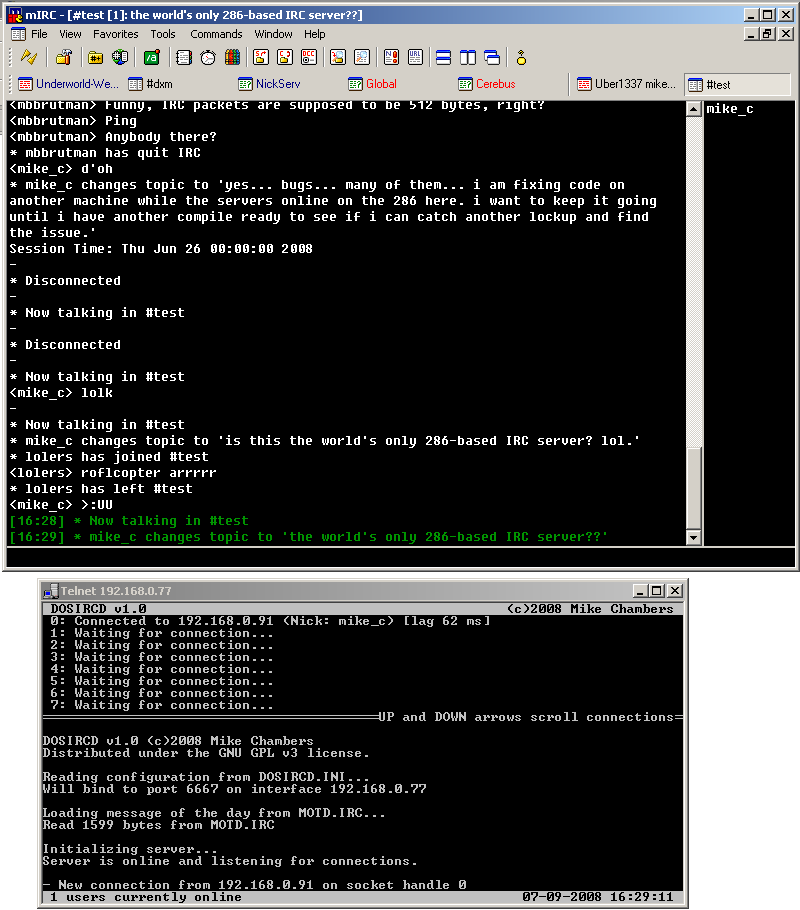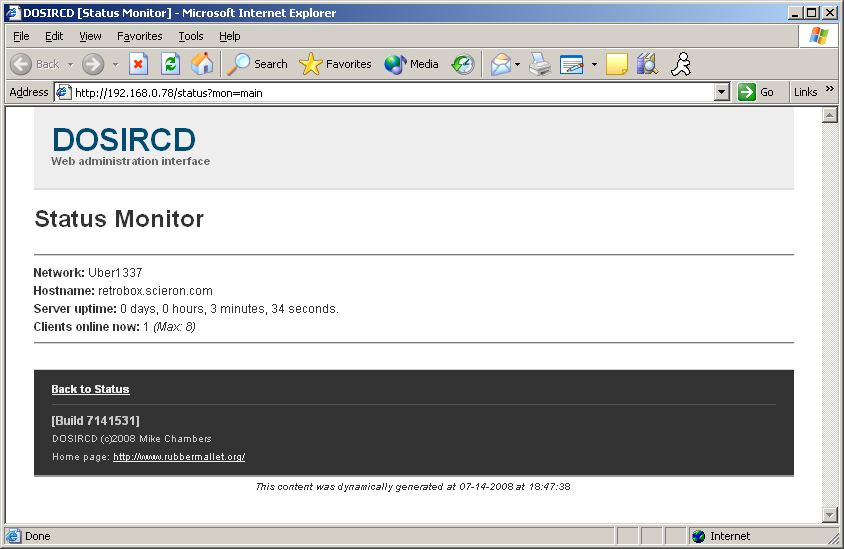Mike Chambers
Veteran Member
- Joined
- Sep 2, 2006
- Messages
- 2,655
i thought i'd make a new one to get more hits and people logging in. feel free to close the other thread!
i am still lacking PING (that's a biggie, i know) functionality, along with recognizing a few commands:
USER, USERHOST, WHOIS, and a couple other little ones. right now it just assumes everybody's user line is "nobody".
after i implement all that (After a successful test session here, hopefully for a few days) i am going to hardcode services (nickserv/chanserv/etc)
i believe i have completely solved the occasional lock up issue i was having. stupid oversight where i dimensioned the input buffer string for TCP connections to be 2048 bytes long, yet when i called TCPDRV hook to dump the data into them, i told it that up to 4096 bytes was okay! D'OH!!!!
i've been up for days on my LAN with me logging and and out from different machines and many different clients.
feel free to check it out.. /LIST works too and there are channel topics now. i'm basically just hanging out in #test - don't feel disheartened if i'm not there actively talking just hang out and idle if you don't mind. people will be logging in and out i hope.
just hang out and idle if you don't mind. people will be logging in and out i hope.
server: 66.190.143.6
port: 6667
thank you, and wish me good luck as far as it not crapping out and locking up goes!! that would be nice if it doesn't crash...
it IS running on an 8088 at 4.77 mHz, and i think the performance for a multi-threaded chat server is actually VERY impressive considering the processor and the language it's written in (uyyyyy! QB45 for the win)
i am still lacking PING (that's a biggie, i know) functionality, along with recognizing a few commands:
USER, USERHOST, WHOIS, and a couple other little ones. right now it just assumes everybody's user line is "nobody".
after i implement all that (After a successful test session here, hopefully for a few days) i am going to hardcode services (nickserv/chanserv/etc)
i believe i have completely solved the occasional lock up issue i was having. stupid oversight where i dimensioned the input buffer string for TCP connections to be 2048 bytes long, yet when i called TCPDRV hook to dump the data into them, i told it that up to 4096 bytes was okay! D'OH!!!!
i've been up for days on my LAN with me logging and and out from different machines and many different clients.
feel free to check it out.. /LIST works too and there are channel topics now. i'm basically just hanging out in #test - don't feel disheartened if i'm not there actively talking
server: 66.190.143.6
port: 6667
thank you, and wish me good luck as far as it not crapping out and locking up goes!! that would be nice if it doesn't crash...
it IS running on an 8088 at 4.77 mHz, and i think the performance for a multi-threaded chat server is actually VERY impressive considering the processor and the language it's written in (uyyyyy! QB45 for the win)


